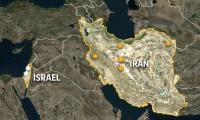The price of gas
The unpopular decision to approve a 46 percent gas hike was withdrawn in a meeting of the Economic Coordination Committee (ECC) on Monday. The government has now proposed an alternate gas price reform plan, which does not affect the poor, but increases the contribution of the rich. The PTI blamed the last government for the Rs156 billion annual deficit in the gas sector. But one must wonder what kind of accounting is happening in the gas sector. The annual and quarterly reports of both SNGPL and SSGC continue to report profits. The SNPGL accounts for the year 2016-17 claim that the company made the ‘highest ever in its history.’
How can there be a deficit when gas companies are claiming sound financial health in their account statements? One should expect the finance minister to take the stage and explain where the deficit is and why Ogra feels the situation is poor enough to propose the tripling of gas prices across all sectors. The real issue seems to be the guarantee of a 17.5 percent rate of return to the companies promised by the government. The deficit seems to be the differential between the promised profits and the actual profits that the companies are able to accrue.
One must wonder how such a high rate of return has been promised to public-sector enterprises. Given the guidelines it is operating under, Ogra could be justified in asking for a tripling of gas prices, but then there is a problem with the guidelines it has been provided. Should there not be a case for the government to revisit the rate of return promised to gas distributors? A crude analysis of the annual and quarterly reports of gas distributors does not flag up any cash flow or profitability problem. How are the CEOs of public-sector gas enterprises justified in raising the alarm bells of a circular debt crisis in the gas sector? Perhaps the accounts are not telling the full story. Perhaps gas-sector officials and the assemblage of experts are not telling the full story. The case for what is labelled free-market reform of the gas sector is not an obvious one when the financial health of gas companies seems sound in their own accounts. There is a need for a conversation which opens up the question of whether a price hike is in fact needed for the health of the gas sector. The evidence in support of a price hike seems flimsy, given the details on the surface. The finance minister would be served better – and would serve better – by asking serious questions about the matter.
-
 Nvidia’s New Specialized Chip Aims To Accelerate AI Processing Speeds
Nvidia’s New Specialized Chip Aims To Accelerate AI Processing Speeds -
 Demi Moore Was Left With ‘intense’ Illness After ‘The Substance’
Demi Moore Was Left With ‘intense’ Illness After ‘The Substance’ -
 How AI Can Read Your Thoughts Without You Speaking?
How AI Can Read Your Thoughts Without You Speaking? -
 Elon Musk’s Grok Faces Scrutiny From Federal Agencies Amid Pentagon-Anthropic Standoff–Here’s Why
Elon Musk’s Grok Faces Scrutiny From Federal Agencies Amid Pentagon-Anthropic Standoff–Here’s Why -
 ‘I Saw Nothing’: Bill Clinton Denies Knowledge Of Epstein’s Crimes In House Testimony
‘I Saw Nothing’: Bill Clinton Denies Knowledge Of Epstein’s Crimes In House Testimony -
 Jim Carrey Makes Surprising Confession About Rarely Seen Girlfriend Min Ah
Jim Carrey Makes Surprising Confession About Rarely Seen Girlfriend Min Ah -
 How Michael J. Fox Helped Harrison Ford With His Parkinson's Monologue
How Michael J. Fox Helped Harrison Ford With His Parkinson's Monologue -
 AI Safety Battle: Anthropic Fires Back At Pentagon After US Military Flags It ‘supply Chain Risk’
AI Safety Battle: Anthropic Fires Back At Pentagon After US Military Flags It ‘supply Chain Risk’ -
 OKC Vs Nuggets: NBA MVP Shai Gilgeous-Alexander Scores 36 In Fiery Overtime Win
OKC Vs Nuggets: NBA MVP Shai Gilgeous-Alexander Scores 36 In Fiery Overtime Win -
 Eric Dane's Biggest Regret Comes To Light Following Days Of His Death
Eric Dane's Biggest Regret Comes To Light Following Days Of His Death -
 Israel Launches Attack On Iran's Capital And Declares State Of Emergency
Israel Launches Attack On Iran's Capital And Declares State Of Emergency -
 At Least 15 Dead After Military Plane Carrying New Banknotes Plunges Out Of Control In Bolivia
At Least 15 Dead After Military Plane Carrying New Banknotes Plunges Out Of Control In Bolivia -
 OpenAI Partners With Pentagon After Trump Bans Anthropic AI
OpenAI Partners With Pentagon After Trump Bans Anthropic AI -
 Trump Orders Federal Agencies To Stop Using Anthropic AI Tools
Trump Orders Federal Agencies To Stop Using Anthropic AI Tools -
 Shocking Details Emerge In Martin Short’s Daughter Katherine's Death Investigation: 'Kept To Herself'
Shocking Details Emerge In Martin Short’s Daughter Katherine's Death Investigation: 'Kept To Herself' -
 Daniel Serafini Gets Life Without Parole In In-laws Murder And Attempted Murder Case
Daniel Serafini Gets Life Without Parole In In-laws Murder And Attempted Murder Case



